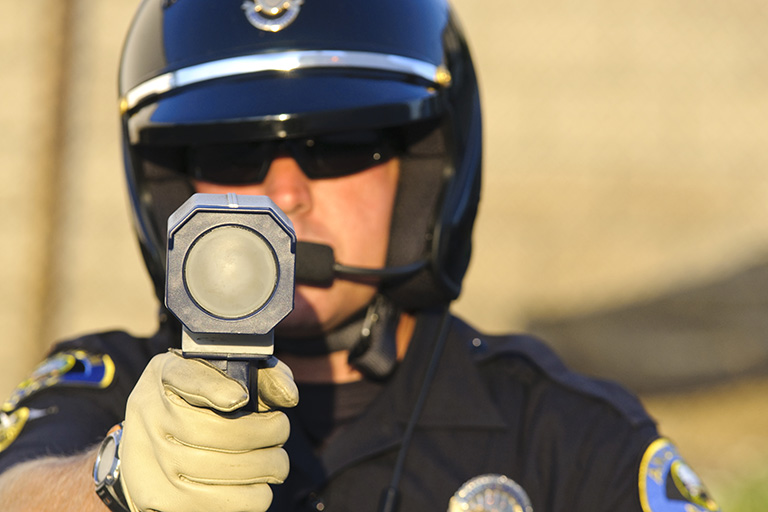
You’re driving down the highway when you see the red and blue lights in your rearview mirror. You slow your car to a stop as the police officer parks behind you and begins to exit has squad car. You think to yourself, “what would be a good excuse to tell the officer”? Well, here is a list of the top ten excuses pretty much guaranteed not to work:
1) Going with the flow – When driving in Chicago or on any major roadway in Illinois, people are speeding. Some drivers are speeding a little and some are speeding a lot, but regardless of what others may or may not be doing, it has no effect on your own responsibility under the Illinois traffic laws. After all, a single police quad car can only pull over one (or maybe two) vehicles at one time. They can’t pull over everyone who’s speeding around you all at the same time. If you’re the unlucky person who gets pulled over that day when everyone else is doing the same thing, it’s just not your day. But it’s also not a legal defense either.
2) Trying to get away from a bad driver – Sometimes a defendant will say that he had to speed up to get away from another driver who was acting crazy or reckless. He may say that the other driver was cutting him off, trying to sideswipe him, waving a gun, or was a drunk driver putting him at risk of being injured. These things do in fact happen almost every day as the roadways are filled with drivers who often do put others in danger. But getting a judge to accept that “speeding up” is the proper response to such a danger is entirely another matter. In fact, most judges would say that a better idea might have been to slow down or even pull off the road and wait a few minutes to proceed. So, although this can sometimes be a successful defense to speeding, it’s more often rejected than it’s accepted.
3) It’s an emergency – Whatever your emergency is, chances are that the police officer who’s pulling you over has a different opinion of what constitutes an emergency. Ultimately, it’s up to the trial judge to determine in court whether your circumstances truly constituted an emergency and your actions were therefore justified under the legal theory of “necessity”. Some examples of things that are highly unlikely to be accepted by the judge as true emergencies include:
- The store was about to close and you needed something
- You were late for work, appointment, funeral, interview, dinner or concert
- You picked up hot food and didn’t want it to get cold
- You needed to go to the bathroom
- Some medical “emergencies” may in fact be a good defense, while others may not. Each case is different.
4) I wasn’t speeding – Traffic police officers make mistakes; they absolutely do. They may have aimed their radar or laser gun at the wrong car inadvertently or incorrectly computed your speed. An experienced traffic violation lawyer in Chicago can often help in such circumstances. But when an officer has pulled you over and is telling you that you were speeding, that officer has already made up their mind. To challenge the speed, you will need to do this in court in front of the judge, not on the side of the road with the officer. Whether you’ve been pulled over by the Illinois State Police, the Chicago Police or any of the hundreds of other departments that patrol the State of Illinois, you’re not going to change an officer’s mind after being pulled over. You might get a free pass and the cop may be in a good mood that day and let it slide, but change their mind? That’s very unlikely. You’ll need to tell it to the judge.
Hire an Experienced Speeding Attorney
Keep in mind that a police officer is not the judge and not the jury. He or she is merely accusing you of committing a traffic violation. But ultimately, it’s up to the trial judge to determine your guilt or innocence at traffic court. Hire a knowledgeable Chicago criminal defense attorney to help you in such circumstances and your chances to protect your driving record and your driving privileges will be greatly increased. Mitchell S. Sexner & Associates LLC is available for a free initial consultation about your traffic matter and can be reached online or by calling (312) 644-0444.
